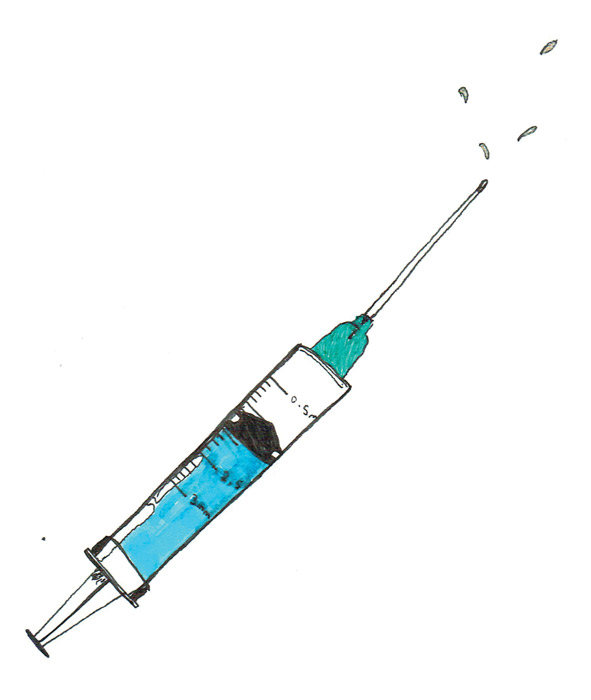“Prevention against morbidity and mortality by vaccination is one of the biggest medical successes in humanity. Never forget that fact. Get vaccinated,” Dr. Jörg Fritz, assistant professor in McGill’s Department of Microbiology and Immunology, told the audience at the first night of the three-part seminar series entitled “Let’s Talk About Vaccines.”
From Nov. 22 to 24, various McGill professors spoke about the importance of vaccine knowledge at the first ever McGill Students for Vaccination and Awareness Week.
Dr. Irah King, assistant professor in the Department of Microbiology and Immunology, kicked off the first talk of the seminar with his speech, “Why Should We Vaccinate?”
King spoke about how even without 100 per cent vaccination, vaccines are extremely effective and important in offering not just individual protection, but also herd immunity. Herd immunity is when an outbreak is much more likely to occur in a crowd of unvaccinated individuals than it is to occur in a group in which the majority are vaccinated.
“There is a very limited risk of spreading this infection because all the other [unvaccinated] people surrounding are protected, just based on the fact that everybody else is vaccinated and cannot spread the infection,” King said. “You’re protecting the entire community through vaccination, […] it’s not just protecting yourself.”
King admits that many vaccines are not completely protective and that virtually none are perfect.
“Most vaccines don’t provide lifelong protection, so we need to build better vaccines so one shot is enough to protect you from a pathogen for the rest of your life,” he said. “[Without vaccination], you’re not just putting yourself at risk, you’re putting others at risk.”
On the third night, Dr. Brian J. Ward, associate professor in McGill’s Department of Microbiology and Immunology, presented on the topic of the anti-vaccination movement.
The anti-vaccine argument is hardly a new idea, but in the last few years campaigns have grown due to their propagation on social media—despite simultaneous advances in immunology and vaccination.
Dr. Ward believes that the arguments that prove vaccines are essential are often used to disprove their necessity.
“Vaccines are victims of their own success,” Dr. Ward said. “If you define ‘safe’ as harmless, then no vaccine is safe. If you define them as ‘prevention from another danger,’ then vaccines are among the safest medical interventions.”
The anti-vaccine campaign has been recently gaining ground and is attracting increased worldwide attention. Liam Whalen-Browne, U3 Microbiology and co-organizer of the event, wishes vaccine education were given as much attention as the anti-vaccine movement.
“There’s this persisting anti-vaccine movement […] for the past decade or so that has been creating a lack of education,” he said. “The number of people hasn’t necessarily been growing, but the vocality has.”
Olivia Ganescu, U3 Microbiology and co-organizer of the event, talked about how anti-vaccine ideas could have originated as a result of misinformation.
“People don’t have all the answers, and they see what’s in front of them […],” Ganescu said. “They just don’t understand what’s going on, and they might be really quick to assume causation based on nothing.”
Much of the anti-vaccine argument is supported by the notion that no vaccine is completely safe.
However, by focusing on safety, Dr. Ward believes people are missing the point.
“We could make safe vaccines, but the bottom line is […] you really should be comparing the effects of the disease versus the effects of the vaccine,” Dr. Ward said.







Sounds like it was an outstanding seminar.